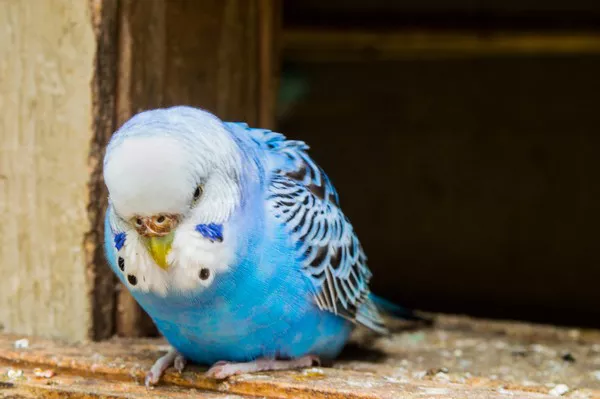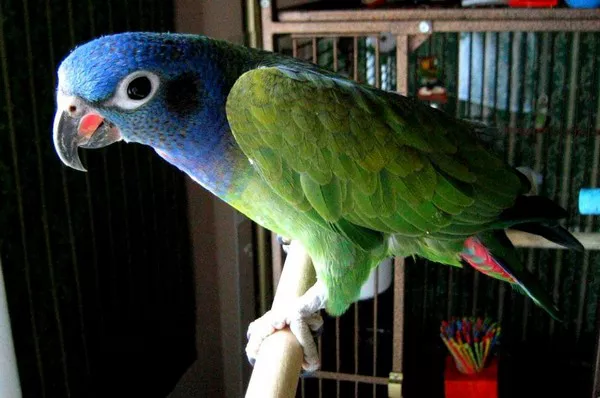When it comes to pet ownership, few things are as exciting as bringing a sun conure into your home. With their vibrant colors, playful personalities, and charming vocalizations, these parrots can light up any room—though they might also bring some chaos along for the ride. But before you rush out to get one, there’s a crucial question to consider: How big of a cage does a sun conure need? Let’s unravel this feathered mystery!
Understanding Sun Conures: The Little Suns of Your Life
Sun conures, also known as Aratinga solstitialis, are small, lively birds that hail from the tropical forests of South America. They are known for their bright yellow and orange plumage, accented with shades of green and blue. Beyond their stunning looks, these birds are social creatures that thrive on interaction and stimulation.
Like all pets, sun conures have specific needs—chief among them being adequate space. Think of their cage as a tiny apartment: it needs to be comfortable, functional, and engaging. So, what are the specifics of this feathered real estate?
The Ideal Cage Size
While the ideal cage size can vary based on personal preferences and circumstances, the general guideline is to provide a cage that is at least 24 inches long, 24 inches wide, and 36 inches high. This is a minimum. If you have the room—and your sun conure has the energy—you should aim for larger.
Why Larger is Better
Room to Move: Sun conures are active birds. They love to climb, flap, and explore. A larger cage allows them to stretch their wings and engage in natural behaviors.
Socialization: These birds are highly social. A spacious cage can accommodate multiple perches, toys, and even a buddy if you decide to adopt another conure in the future.
Mental Stimulation: A bigger cage means more opportunities to add enrichment items—things like swings, ladders, and toys that challenge their minds and keep them entertained.
The Right Cage Shape
While size is essential, the shape of the cage matters too. A rectangular or square cage provides ample horizontal space for flight, which is crucial since sun conures love to fly.
Why Avoid Round Cages?
Round cages may seem cozy, but they limit the bird’s ability to move freely. Think of it like living in a circular room—no corners to explore! Birds thrive when they have places to perch and explore, so stick with a rectangular design.
Bar Spacing Matters
Another vital aspect to consider is bar spacing. For sun conures, the bars should be spaced no more than ¾ inch apart. If the bars are too far apart, your feathery friend might escape or, worse, get stuck. Too close together, and they may feel claustrophobic.
Cage Accessories: The Fun Stuff
Once you have the right cage, it’s time to think about how to make it a fun place for your sun conure. Just like humans, birds need their “stuff.” Here are some essentials:
Perches: Vary the size and texture of perches to keep those little feet healthy and happy. Natural wood perches are great, but don’t forget to include a few that are smooth and comfortable.
Toys: Sun conures are notorious toy destroyers! Provide plenty of toys—think chew toys, puzzles, and things to swing on. Rotate them regularly to keep things fresh.
Food and Water Bowls: Make sure they’re easily accessible. Using bowls that attach to the side of the cage helps keep the area clean.
Cage Liners: Keeping the cage clean is crucial. Use newspaper or specialized liners for easy cleanup.
Outdoor Time: The Ultimate Luxury
While a spacious cage is essential, sun conures also need time outside their cage. Consider setting up a play area or bird stand where they can roam freely under your supervision. This time allows for physical exercise and mental stimulation. Just remember to bird-proof the area—no exposed electrical cords or tempting plants!
See Also: Are Sun Conures Always Loud?
Socializing Your Sun Conure
Sun conures thrive on social interaction. They are incredibly affectionate and love spending time with their human companions. Spend time talking to your bird, playing with them, and letting them out for supervised exploration. They are intelligent creatures and will quickly learn to respond to your voice and engage with you.
Common Cage Mistakes to Avoid
Too Small: The biggest mistake you can make is providing a cage that’s too small. This can lead to boredom and behavioral issues.
Poor Location: Place the cage in a busy area of your home where your sun conure can see and interact with the family. Avoid placing it in a dark corner or a high place where they might feel isolated.
Neglecting Cleaning: A clean cage is crucial for your bird’s health. Regularly clean the cage and change the bedding to prevent illness.
Diet: A Complement to Their Habitat
While we’re on the subject of your sun conure’s well-being, let’s not forget diet. A spacious cage with plenty of toys is great, but a balanced diet is just as important. Provide a mix of high-quality pellets, fresh fruits, and vegetables. Occasional treats, like nuts or seeds, can be rewarding, but they shouldn’t make up a significant part of their diet.
The Bond Between Cage Size and Behavior
A well-sized cage contributes to a sun conure’s overall happiness. Birds in smaller cages often exhibit signs of stress, such as excessive screaming or feather plucking. A spacious and engaging environment allows them to express natural behaviors, which is essential for their mental health.
Safety First: Bird-Proofing Your Home
Before you let your sun conure explore outside their cage, make sure your home is bird-proofed. Here are some tips:
Secure Windows and Doors: Make sure all windows and doors are closed or have screens. Birds are curious creatures and can easily fly outside.
Cover Electrical Cords: Birds love to chew. Hide or cover any exposed electrical cords to prevent accidents.
Remove Toxic Plants: Some plants are toxic to birds. Ensure any houseplants are safe for your feathered friend.
Conclusion
In summary, when it comes to how big of a cage a sun conure needs, remember that bigger is almost always better. Aim for a minimum size of 24x24x36 inches, with plenty of accessories and room for exploration. Combine this with regular outdoor time, a balanced diet, and social interaction, and you’ll have a happy, healthy sun conure that lights up your life with their playful antics and vibrant personality.
Adopting a sun conure is a commitment, but the joy they bring is well worth the effort. With the right cage size and a loving environment, you’ll be rewarded with a lively companion that brightens your days. So go ahead—set up that feathered mansion, and let the sun conure take over your home!
Related Topics:



























